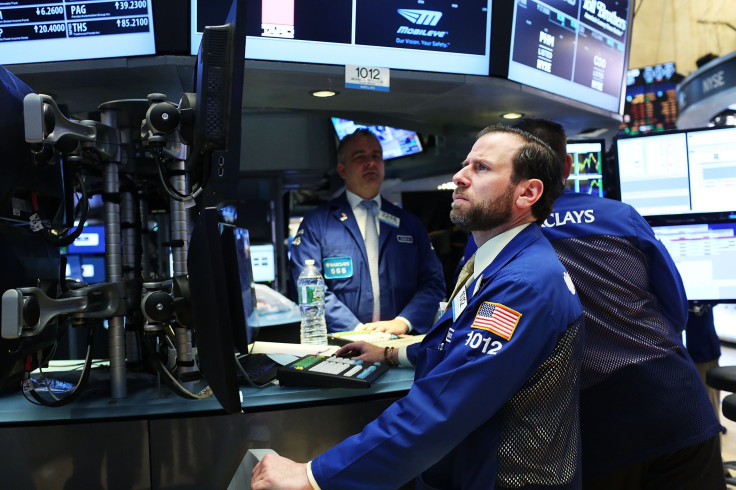Dow Jones Industrial Average Advances After Cautious Moves In Wake Of Aggressive European Central Bank Move

This story was updated at 4:20 p.m. EST.
U.S. stocks ended Friday up and posted their fourth consecutive weekly gain. European shares rallied after the European Central Bank announced aggressive stimulus measures, a move that on Thursday had pushed shares lower on both sides of the Atlantic.
Traders pushed shares up on a perception that investors overreacted Thursday to ECB President Mario Draghi’s statements following the policy shift.
“The adverse market reaction to the ECB’s bolder-than-expected package of policy measures unveiled on Thursday reflected concerns, partly prompted by comments from President Mario Draghi, that the central bank is running out of policy ammunition,” a research note from Capital Economics said Friday. “Those concerns seem a bit overdone.”
The situation will become clearer next week when a raft of European economic data is released, including eurozone industrial activity and trade data for January, as well as the latest Swiss monetary policy rate assessment.
The Dow Jones Industrial Average (INDEXDJX:.DJI) closed up 218.18 points, or 1.28 percent, to 17,213.31. The broader Standard & Poor’s 500 index (INDEXSP:.INX) gained 32.62 points, or 1.64 percent, to 2,022.19. The Nasdaq composite (INDEXNASDAQ:.IXIC) advanced 86.31 points, or 1.85 percent, to 4,748.47.
The Dow and S&P are both down more than 1 percent for the year and up more than 8 percent and 9 percent, respectively, from a year-to-date low struck on Feb. 11.
All 10 S&P 500 sectors closed up Friday, led by financials and energy stocks. Pfizer Inc. (NYSE:PFE) led Dow gains for the day while Procter & Gamble Co. (NYSE:PG) led declines.
Official data on U.S. import prices released Friday morning showed a 0.3 percent decline in February, significantly less than the 0.6 percent loss forecast by economists polled by Reuters. This monthly measure offers a signal of inflationary trends, something the U.S. Fed is watching closely to weigh decisions on future interest rate hikes.
Import prices have contracted for eight consecutive months but more recently have done so at a slower pace. The 12-month moving rate has been in negative territory for 18 months but is rebounding from September’s four-year low.
Oil prices reversed direction Friday after closing down in the previous trading session. Weekly data on the number of active drilling rigs due out later in the day will affect crude futures heading into the weekend.
U.S. West Texas Intermediate gained 1.82 percent by late Friday afternoon to $38.53 per barrel for April delivery on the New York Mercantile Exchange. Brent crude, the other major global benchmark, rose 0.95 percent to $40.43 for May delivery on the London ICE Futures Exchange.
The benchmark U.S. 10-year Treasury ticked upward Friday to 1.99 from its previous day close of 1.94 percent. The bond yield typically rises when investors are more confident about the markets and falls when concerns flare. Gold, another so-called safe-harbor investment, lost 1.73 percent to $1,250.80 per troy ounce. Gold prices tend to fall as confidence in the markets rises.
European stocks were headed higher on the last trading session for the week.
The broad Stoxx Europe 600 gained 2.62 percent to 342.23. The Paris-based CAC 40 rose 3.27 percent to 4,493 while London’s FTSE was up 1.71 percent to 6,140. Frankfurt’s DAX advanced 3.28 percent to 9,809.29.
Asian stocks ended the week higher as investors perceived Thursday’s moves in Europe and the U.S. as an overreaction to the ECB announcement.
China’s broad CSI 300 index of the mainland’s largest companies closed up 0.17 percent to 3,018. Hong Kong’s Hang Seng gained 1.08 percent to 20,199.6. Japan’s Nikkei gained 0.51 percent to 16,938.87. Australia’s S&P/ASX 200 lost 0.32 percent to 5,166.39, while South Korea’s main Kospi Index edged up 0.11 percent to 1,971.41.
© Copyright IBTimes 2025. All rights reserved.






















